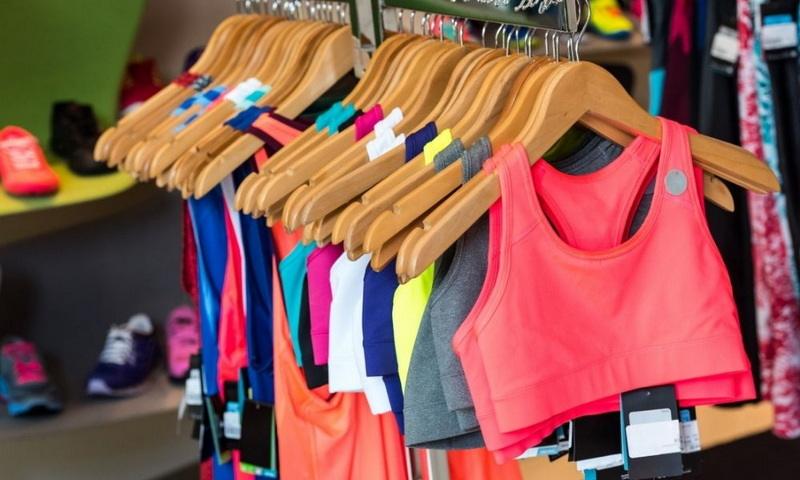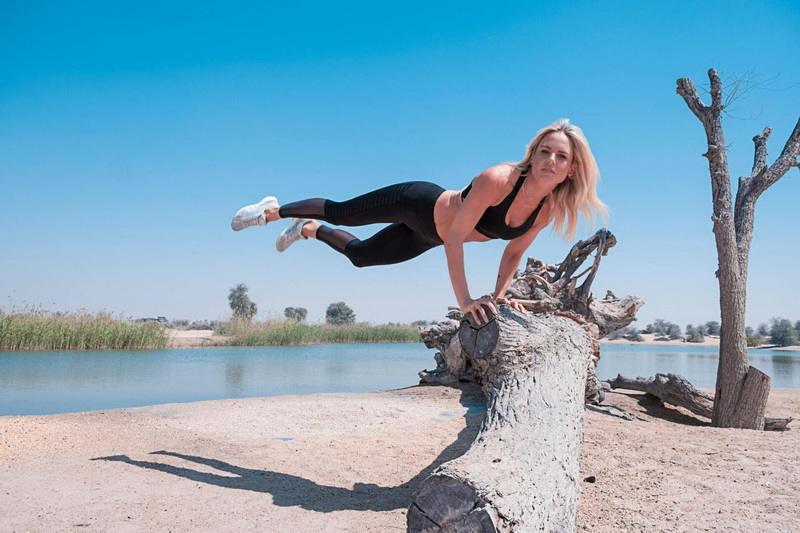Content Menu
● What Is Custom Branded Sportswear?
>> Key Features of Custom Branded Sportswear
>> Key Features of Generic Sportswear
● Technical Differences: Custom Branded vs Generic
>> 1. Product Development Process
>> 2. Fabric and Material Science
>> 3. Supply Chain and Manufacturing Insights
>> 4. Brand Impact and Consumer Perception
● The Strategic Value of Customization
>> Driving Performance and Unity
>> Enabling Agility and Innovation
>> Sustainability and Responsible Sourcing
● Advanced Product Development Techniques in Custom Sportswear
>> 3D Body Scanning and Fit Technology
>> Seamless Construction and Ergonomic Design
>> Smart Textiles and Wearable Technology Integration
● Supply Chain Excellence: Managing Complexity with Precision
>> Supplier Collaboration and Material Traceability
>> Inventory Optimization and Just-In-Time Manufacturing
>> Quality Assurance and Continuous Improvement
● Marketing and Brand Differentiation Through Custom Sportswear
>> Creating a Unique Brand Identity
>> Enhancing Customer Engagement
>> Supporting Sponsorships and Partnerships
● When to Choose Custom Branded Sportswear Over Generic
● FAQ
>> 1. What is the minimum order quantity (MOQ) for custom branded sportswear?
>> 2. How long does the custom development process take?
>> 3. Can custom sportswear match my exact brand colors and logos?
>> 4. What performance features can be integrated into custom sportswear?
>> 5. How does custom branded sportswear support sustainability?
In today’s hyper-competitive sportswear market, brands and organizations face a pivotal decision: invest in custom branded sportswear or opt for generic, off-the-shelf alternatives. This choice impacts not only the look and feel of your apparel but also your brand reputation, athlete performance, and customer loyalty. As a business focused on technical excellence, supply chain optimization, and innovative product development, we believe the distinction between custom branded and generic sportswear is both profound and transformative.
This article explores the technical, operational, and strategic differences that set custom branded sportswear apart from generic options. We’ll delve into the intricacies of design, manufacturing, supply chain management, and the unique value proposition that only true customization can deliver.

What Is Custom Branded Sportswear?
Custom branded sportswear is not simply a standard garment with a logo slapped on. It is a meticulously engineered product, developed from the ground up to embody your brand’s identity, meet specific performance requirements, and deliver a unique user experience. Every element—from fabric selection and color matching to fit, silhouette, and finishing details—is tailored to your vision and needs.
Key Features of Custom Branded Sportswear
– Bespoke Design: Apparel is created from scratch, reflecting your unique brand identity and functional requirements.
– Material Innovation: Choose or develop fabrics with advanced properties such as moisture-wicking, UV protection, anti-microbial finishes, and precise compression levels.
– Brand Consistency: Achieve perfect Pantone color matching and integrate brand elements seamlessly across all apparel.
– Performance Engineering: Garments are optimized for specific sports, climates, and user profiles, enhancing comfort and athletic output.
– End-to-End Control: Every stage, from concept to delivery, is managed with your brand objectives in mind.
What Is Generic Sportswear?
Generic sportswear refers to mass-produced, off-the-shelf garments designed for broad market appeal. These products are usually manufactured in large quantities, with minimal customization options beyond basic color or size selection.
Key Features of Generic Sportswear
– Cost-Effective: Lower price point due to economies of scale and reduced design or development costs.
– Limited Customization: Typically restricted to adding a logo or choosing from a set palette of colors and sizes.
– Standardized Fit and Fabric: Designed to fit a wide range of users, often sacrificing optimal fit and performance.
– Faster Turnaround: Immediate availability for urgent needs, but at the expense of uniqueness and brand differentiation.
Technical Differences: Custom Branded vs Generic
1. Product Development Process
| Aspect | Custom Branded Sportswear | Generic Sportswear |
| Design Approach | Ground-up, brand-driven | Template-based, mass-market |
| Material Selection | Bespoke, performance-oriented | Standard, cost-focused |
| Fit & Silhouette | Tailored to user needs | Generic, “one-size-fits-most” |
| Branding | Integrated at every level | Surface-level (logo only) |
| Production Volume | Flexible, from small runs to large scale | High volume only |
2. Fabric and Material Science
Custom sportswear leverages the latest textile innovations. Brands can specify:
– Moisture management systems for sweat control
– Breathable mesh zones for ventilation
– Compression panels for muscle support
– Antimicrobial and anti-odor treatments for hygiene
– UV protection for outdoor use
Generic sportswear, meanwhile, typically uses standard polyester or cotton blends, with limited technical enhancements.
3. Supply Chain and Manufacturing Insights
Custom branded sportswear requires a responsive, agile supply chain capable of handling:
– Small-batch, high-mix production
– Rapid prototyping and sampling
– Collaborative design iterations
– Rigorous quality control at every stage
Generic sportswear is manufactured in bulk, with long lead times and minimal flexibility for design changes. The focus is on cost reduction and inventory turnover, often at the expense of innovation and quality.
4. Brand Impact and Consumer Perception
Custom sportswear is a powerful tool for brand storytelling. It:
– Reinforces brand values through every detail
– Creates a sense of exclusivity and pride among wearers
– Enhances perceived value and customer loyalty
– Differentiates your organization in crowded markets
Generic sportswear, while functional, does little to elevate brand perception or foster emotional connections with users.
The Strategic Value of Customization
Driving Performance and Unity
When athletes wear apparel engineered for their specific sport, climate, and body type, the results are tangible: improved comfort, better performance, and reduced risk of injury. Custom kits also foster team unity and morale, making every member feel valued and connected to the brand’s mission.
Enabling Agility and Innovation
Custom sportswear manufacturers can respond rapidly to changing trends, new technologies, and evolving customer needs. This agility is a critical advantage in industries where innovation is key to staying ahead.
Sustainability and Responsible Sourcing
Custom production allows for smarter material choices, reduced waste, and transparent supply chains. Brands can select eco-friendly fabrics, ethical manufacturing partners, and implement just-in-time production to minimize environmental impact.

Advanced Product Development Techniques in Custom Sportswear
3D Body Scanning and Fit Technology
One of the most significant advancements in custom sportswear development is the use of 3D body scanning technology. This technique captures precise body measurements and shapes, allowing for garments that fit perfectly and enhance athletic performance. Unlike generic sportswear, which relies on standard sizing charts, custom apparel can be tailored to individual or team-specific body geometries, reducing discomfort and improving mobility.
Seamless Construction and Ergonomic Design
Custom sportswear often incorporates seamless or bonded seams, reducing chafing and irritation during intense physical activity. Ergonomic design principles ensure that panels and fabric placements align with muscle groups and movement patterns, enhancing support and flexibility. Generic sportswear typically uses traditional stitching methods and generic patterns, which may not cater to the dynamic needs of athletes.
Smart Textiles and Wearable Technology Integration
The future of custom sportswear includes integrating smart textiles embedded with sensors to monitor biometrics such as heart rate, temperature, and muscle fatigue. This level of innovation is generally unavailable in generic sportswear. Custom manufacturers collaborate with technology partners to embed these features discreetly, maintaining comfort while delivering actionable data to athletes and coaches.
Supply Chain Excellence: Managing Complexity with Precision
Supplier Collaboration and Material Traceability
Custom sportswear production demands close collaboration with specialized suppliers, ensuring materials meet exacting standards for performance and sustainability. Advanced traceability systems track raw materials from source to finished product, providing transparency and compliance with environmental and labor regulations.
Inventory Optimization and Just-In-Time Manufacturing
Unlike generic sportswear, which often results in overstock and markdowns, custom branded apparel leverages just-in-time manufacturing. This approach minimizes inventory costs and waste by producing only what is needed, when it is needed. It requires sophisticated forecasting and agile production scheduling, capabilities that generic manufacturers typically lack.
Quality Assurance and Continuous Improvement
Custom sportswear manufacturers implement rigorous quality assurance processes, including multiple inspection points, wear testing, and feedback loops with clients. This commitment to continuous improvement ensures that every batch meets or exceeds expectations, fostering long-term partnerships and brand loyalty.
Marketing and Brand Differentiation Through Custom Sportswear
Creating a Unique Brand Identity
Custom sportswear serves as a mobile billboard for your brand. Through unique designs, innovative materials, and consistent branding, it tells your story wherever it is worn. This visibility is crucial in crowded markets where differentiation drives customer choice.
Enhancing Customer Engagement
Offering custom sportswear creates opportunities for deeper customer engagement. Limited edition runs, personalized options, and collaborative design processes invite customers to become part of the brand journey, increasing loyalty and lifetime value.
Supporting Sponsorships and Partnerships
Custom apparel tailored to sponsors’ branding guidelines strengthens partnerships and maximizes exposure. It also allows for creative co-branding opportunities that generic sportswear cannot accommodate.
When to Choose Custom Branded Sportswear Over Generic
– High-Performance Needs: When athlete comfort, fit, and function are paramount.
– Brand Exclusivity: To create products that reflect your unique identity and values.
– Sustainability Goals: To control materials and processes for environmental responsibility.
– Market Differentiation: To stand out in retail or competitive sports markets.
– Event-Specific Apparel: For tournaments, corporate events, or promotional campaigns requiring unique designs.
Conclusion
Custom branded sportswear is more than apparel—it’s a strategic investment in your brand’s future. By choosing a partner with deep technical knowledge, supply chain expertise, and a passion for innovation, you unlock a world of possibilities: superior performance, unmatched brand impact, and a competitive edge that generic products simply cannot provide.
Ready to elevate your brand with truly custom sportswear? Contact our team today for a free consultation and discover how we can bring your vision to life—one stitch at a time.

FAQ
1. What is the minimum order quantity (MOQ) for custom branded sportswear?
Most custom sportswear manufacturers offer flexible MOQs, often starting as low as 50-100 pieces per style. This allows brands of all sizes to benefit from customization without overcommitting on inventory.
2. How long does the custom development process take?
The timeline varies based on complexity, but a typical custom project—from concept to delivery—can take 6-12 weeks. This includes design, sampling, approvals, production, and shipping. Some manufacturers offer expedited services for urgent needs.
3. Can custom sportswear match my exact brand colors and logos?
Yes. Advanced dyeing and printing techniques enable precise Pantone color matching and high-fidelity logo reproduction. This ensures brand consistency across all apparel items.
4. What performance features can be integrated into custom sportswear?
Options include moisture-wicking fabrics, mesh ventilation zones, compression support, UV protection, anti-odor treatments, and more. The features are selected based on your sport, environment, and user needs.
5. How does custom branded sportswear support sustainability?
Custom manufacturing allows for responsible sourcing of materials, reduced waste through made-to-order production, and the use of eco-friendly fabrics and ethical factories. Brands can track and communicate their sustainability commitments with confidence.
Hot Tags:
Custom Branded Sportswear, Generic Sportswear Comparison, Sportswear Branding Solutions, Personalized Athletic Apparel, Branded Team Uniforms, Custom Sports Apparel, Performance Sportswear Design, Custom Logo Activewear, High Quality Sportswear, Branded vs Generic Sportswear,China, Global, OEM, private label, manufacturers, factory, suppliers, manufacturing company, customized, custom
